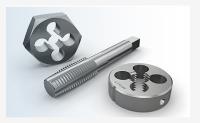 Add My Company
Add My Company
Sign In
What Is Tool Steel?
03-02-2017

By Rob Ellis | 19th July, 2016
It’s been several hundred years since the question “What is in a name?” was introduced into the British consciousness. It’s an interesting principle, because sometimes a name is very precise and exact and at other times, it covers a broad group of items or ideas.
Metallurgy is no more or less guilty of this than any other industry, and use of the term ‘tool steel’ is used as a purely descriptive measure that covers a large number of grades.
Tool steels are high-quality materials that have very precisely controlled chemical compositions and processes to make them ideal to the particular job they do, which can be anything from forming, moulding, forging to die casting. Tool steels are required because lower grades don’t offer anything like the necessary characteristics such as durability, strength, resistance to corrosion or the ability to work in extremes of temperature or depth.
The very strictly controlled compositions of tool steels means that regardless of the purpose, making them stronger, harder, more resistant or more durable will in turn increase a number of benefits, all of which offer much greater gains when compared to ‘lower’ grade steels which could fracture, warp or even grind away under the requirements of being used in such heavy conditions.
By alloying together and controlling the product, it’s possible to make tool steels lighter, which reduces any unnecessary strain on the component parts of the final machine. The parts made can also be more precise, smaller and more reliable, which reduces the requirement for such regular maintenance. Reducing maintenance is always desirable as it reduces downtime, in turn increasing productivity and therefore, profitability.
For more information on What Is Tool Steel? talk to West Yorkshire Steel Co Ltd
Enquire Now
List your company on FindTheNeedle.

